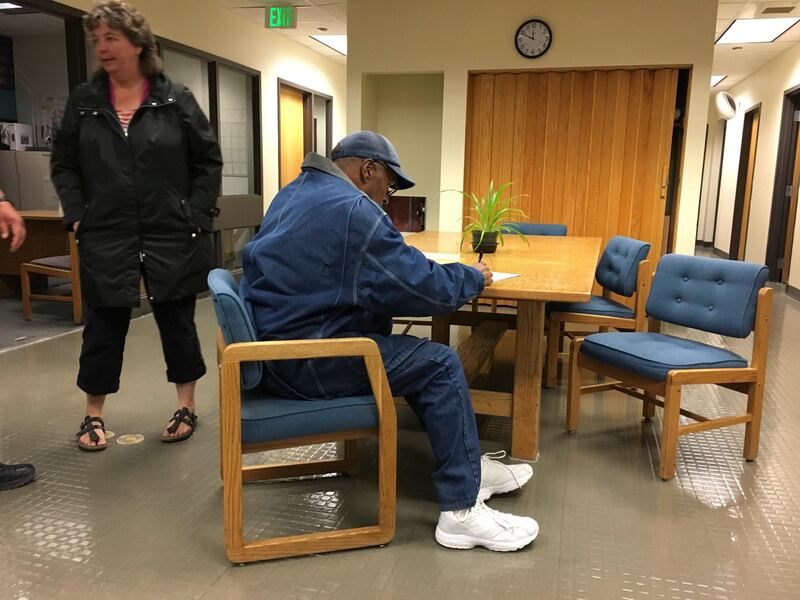OJ Simpson, acquitted of the 1994 murder of his ex-wife and her friend after the "Trial of the Century," was released early on Sunday from a prison in Nevada, where he had been held since 2008 for a botched armed robbery at a Las Vegas casino hotel.
The state's Department of Corrections posted a seven-second video on Facebook showing the retired American football star and former actor being released at 12.08am local time (11.08am UAE).
The midnight timing was "to ensure public safety and reduce the potential for incident," the department said in a brief statement that accompanied the video and a photo showing Simpson signing some papers.
Simpson's lawyer, Malcolm LaVergne, said by text message on Sunday morning: "All information related to Simpson's whereabouts is confidential until [Monday] at the earliest."
Simpson wore a blue baseball-style cap, blue denim trousers and a jacket, and white sneakers as he walked through a door to freedom after a prison guard said: "Here you go. Come on out."
Simpson, 77, was granted parole in July after nine years behind bars. There was no mention at the parole board hearing of his 1990s trial for the murder of his ex-wife Nicole Brown Simpson and a friend, Ron Goldman.
He was found not guilty in 1995 following the sensational, 13-month trial in Los Angeles, which was televised live daily and transfixed much of the country.
A civil court jury subsequently found him liable for the deaths and ordered him to pay $33.5 million (Dh123m) in damages to the victims' families, a judgment that remains largely unpaid.
Born in San Francisco, Simpson played his final professional years with the 49ers and lived in Los Angeles at the time of the murders. California corrections officials said he had not filed papers to live in that state either.
Simpson said at his parole hearing he was ready to spend time with his children and friends and could handle public attention.
Among reasons the commissioners gave for their decision were that Simpson had followed prison rules during his incarceration, had no prior criminal convictions and posed a minimal risk to the public.
In 1968, Simpson won the Heisman Trophy as the top college football player, while attending the University of Southern California. He played more than a decade in the NFL, mostly for the Buffalo Bills, where he became the first player to rush for more than 2,000 yards in a season.
In a video on the New York Post's web site, Simpson spoke from the back of a white SUV at a gas station the newspaper said was in Amargosa Valley, Nevada, about 145km northwest of Las Vegas. "Nothing has changed in my life," he said on the video.
"I’m in a car for the last five hours so how do I know how it feels to be out?" he said through an open window, answering the man who shot the video who called Simpson by his nickname, "Juice".
Asked where he was heading, Simpson replied: "None of your business."
________________________________________________
- Saul Austerlitz: As OJ Simpson prepares to get out of jail, will we still care?
________________________________________________
While his destination remains unclear, Simpson told parole board members he hoped to move to Florida, where he has friends and family, although that must be approved by authorities there.
Florida Attorney General Pam Bondi told Fox News on Sunday Simpson was not welcome there.
"He wants to come to Florida and golf all over our state, and I don't want that to happen," she said. Bondi told Fox and Friends that she might have no legal way to keep Simpson out.
Florida corrections officials say they had not received a parole transfer request and had not been contacted by their counterparts in Nevada.





